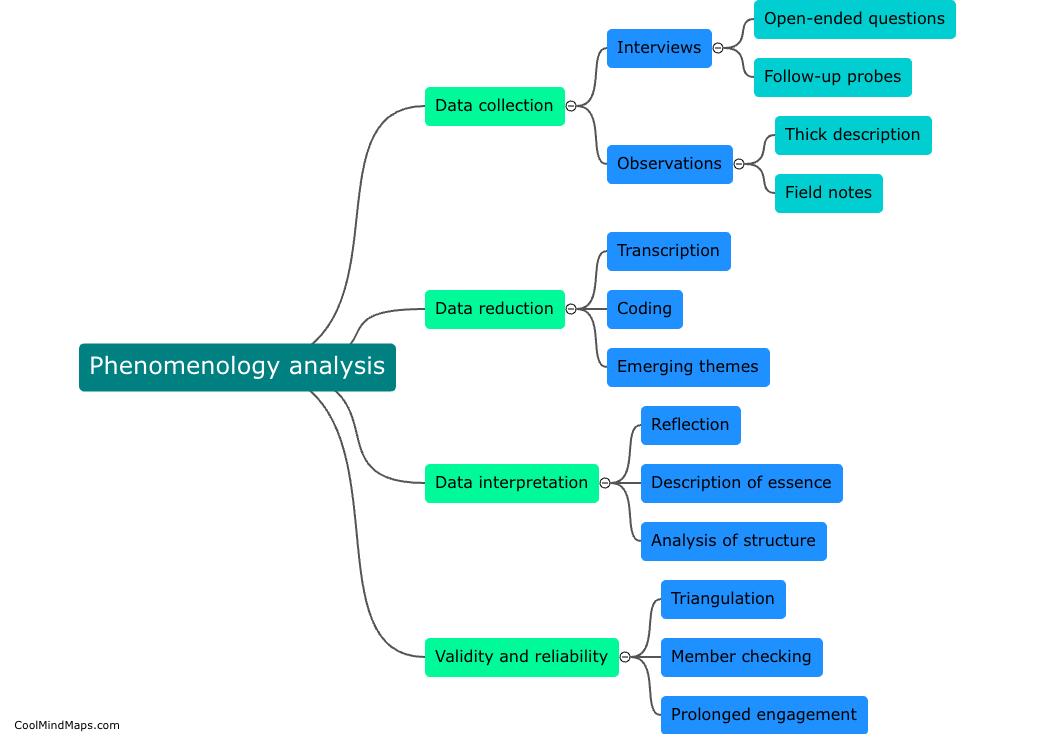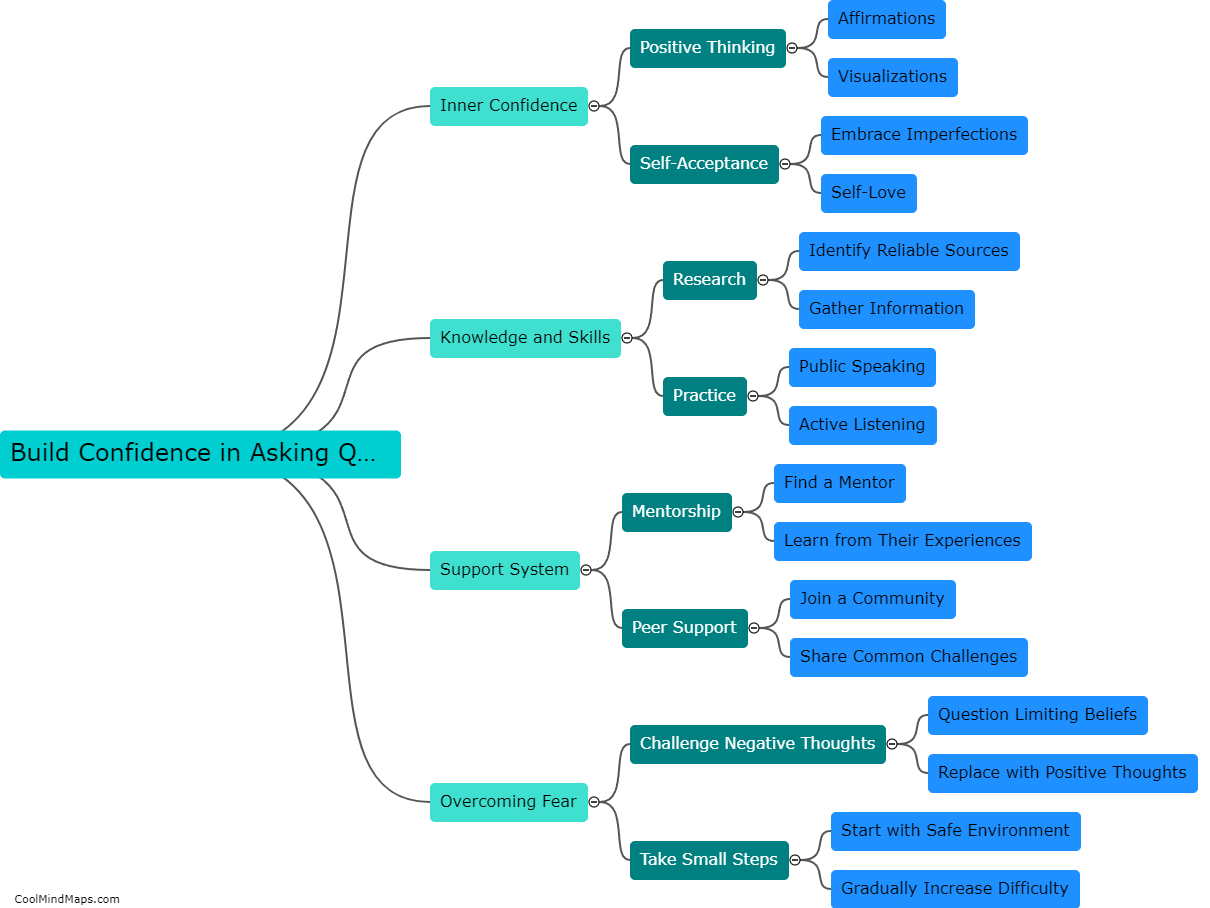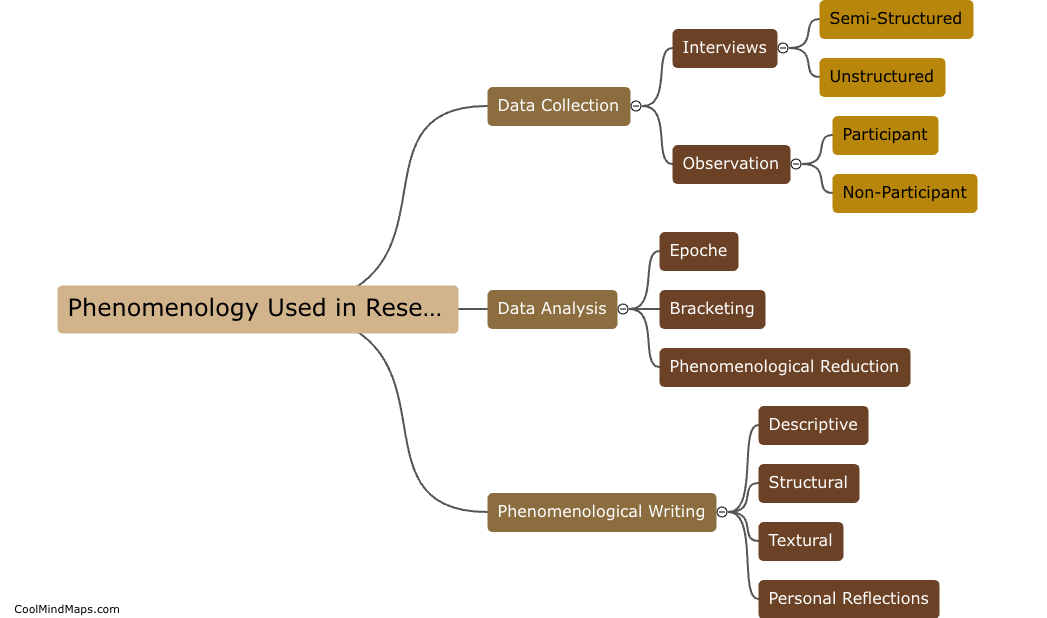How is phenomenology analysis conducted?
Phenomenology is a qualitative research approach that aims to understand and interpret the meanings attributed to lived experiences. The primary method of phenomenological analysis is a process of bracketing, also known as epoché, which involves suspending preconceptions and biases to focus on the raw data presented in the experience. Researchers then engage in a process of intuitive reflection and analysis, identifying and describing the essential structures or themes that emerge from the data. The process of analysis involves continual comparison and synthesis of the data to develop a deeper understanding of the experiences being examined. Ultimately, the aim of this approach is to provide a rich description and interpretation of the phenomenon under investigation.

This mind map was published on 20 April 2023 and has been viewed 106 times.











